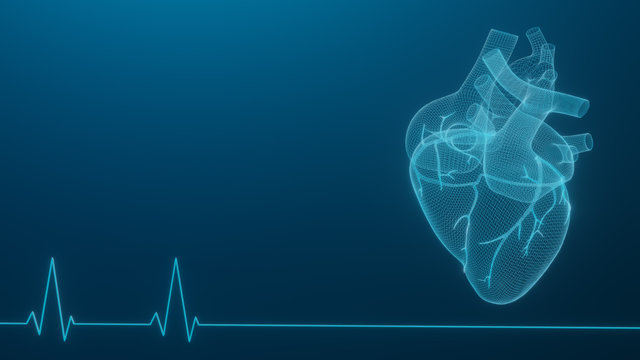What makes Cardiology foundational for modern health?
What makes Cardiology foundational for modern health?
Blog Article
The Function of Cardiology in Precautionary Health and Health Providers
Cardiology is significantly identified for its essential duty in preventative health and wellness and wellness solutions. By highlighting aggressive methods, cardiologists intend to minimize the incidence of cardio conditions. This strategy encompasses risk assessments, lifestyle changes, and regular testings. With these efforts, patients are urged to take control of their heart health and wellness. Nevertheless, the integration of technology and collaboration with various other healthcare companies elevates crucial concerns concerning the future of preventative treatment. What might this evolution require?

Understanding Preventative Cardiology
Comprehending preventative cardiology entails identifying its essential role in minimizing heart disease risk through aggressive procedures. This branch of medicine emphasizes the importance of way of life alterations, consisting of workout, tension, and diet regimen management, to stop heart-related concerns prior to they develop. It promotes for normal health and wellness testings and education to empower people in making educated health and wellness choices.Preventative cardiology also encompasses the recognition of danger factors such as hypertension, diabetic issues, and high cholesterol, urging people to adopt much healthier practices - Cardiology Jupiter. By focusing on prevention instead than reaction, this strategy not only improves individual wellness outcomes but likewise alleviates the total burden on medical care systems. Additionally, it promotes cooperation among health care service providers, areas, and patients, cultivating an alternative technique to heart health and wellness. Inevitably, understanding preventative cardiology influences a change towards a positive way of thinking, prioritizing long-term health and wellness
Risk Analysis and Administration
Threat assessment is vital in determining cardio risks that can result in severe health and wellness problems. Effective management of these risks typically includes applying way of living alteration strategies, such as improved diet plan and boosted exercise. By recognizing and resolving these variables, individuals can greatly reduce their likelihood of developing cardiovascular diseases.
Identifying Cardiovascular Risks
Although various factors add to cardio wellness, identifying cardiovascular threats is essential for reliable avoidance and monitoring. Cardiovascular danger assessment involves evaluating numerous aspects, including family history, age, gender, and way of living practices such as cigarette smoking and physical inactivity. In addition, health conditions like hypertension, diabetes mellitus, and high cholesterol substantially influence an individual's risk profile. Healthcare experts use devices such as danger calculators and biomarker examinations to measure these risks and stratify individuals as necessary. Early identification enables targeted treatments, directing people towards ideal management approaches. By acknowledging these risks, cardiologists can collaborate with clients to produce individualized strategies that emphasize monitoring and positive treatment, ultimately lowering the possibility of damaging cardiovascular events.
Way Of Living Modification Methods
Effective lifestyle adjustment techniques play an important function in taking care of cardio health and minimizing associated risks. These techniques include nutritional adjustments, increased physical activity, and cigarette smoking cessation. A heart-healthy diet plan abundant in fruits, veggies, whole grains, and lean proteins can considerably reduce cholesterol degrees and blood stress. Normal exercise, such as aerobic exercises, enhances and reinforces the heart blood circulation. Additionally, quitting cigarette smoking lowers the threat of cardiovascular disease and improves total health. Medical care specialists often utilize threat analysis tools to tailor these modifications to private requirements successfully. By integrating lifestyle adjustments right into regular care, cardiologists can empower individuals to organize their heart wellness, eventually causing boosted outcomes and reduced medical care expenses.
Lifestyle Adjustments for Heart Health
To keep excellent heart health and wellness, individuals must adopt a range of way of life modifications that greatly minimize the possibility of heart diseases. A well balanced diet plan rich in fruits, veggies, whole grains, and lean proteins is crucial. Minimizing saturated fats, trans fats, and sodium consumption can considerably decrease cholesterol levels and blood stress. Routine physical activity, such as quick strolling or cycling for at the very least 150 minutes per week, additionally plays a considerable duty in boosting and strengthening the heart circulation.Additionally, taking care of stress with techniques like mindfulness and meditation can have a positive effect on heart health and wellness. Preventing cigarette products and limiting alcohol usage even more contribute to a healthier cardio system. Maintaining a healthy weight is critical, as weight problems is a significant risk aspect for cardiovascular disease. By integrating these way of living changes, individuals can cultivate not just their heart health however additionally their general wellness, bring about a more dynamic and energetic life.
The Importance of Regular Testings
Along with way of life alterations, normal screenings play a necessary duty in maintaining heart health and protecting against cardiovascular illness. These analyses are significant for recognizing threat variables such as high blood pressure, high cholesterol, and diabetes, which can cause serious complications if left unattended. Cardiologists recommend routine analyses to check heart function and find irregularities early, enabling for prompt intervention.Screenings, which may include blood electrocardiograms, echocardiograms, and tests, give essential data for personalized therapy strategies. This aggressive strategy equips individuals to make informed decisions concerning their wellness, improving overall wellness. In addition, routine check-ups foster a more powerful doctor-patient partnership, motivating open dialogue concerning heart health issues.
Integrating Technology in Preventive Treatment
Embracing modern technology has actually transformed preventative treatment wikipedia reference in cardiology, providing cutting-edge devices that improve patient tracking and engagement. Wearable devices, such as smartwatches and fitness trackers, allow individuals to check their heart price, task levels, and general health metrics in real-time. These gadgets not only give instant responses however additionally assist in information showing doctor, enabling for prompt interventions when necessary.Additionally, telemedicine has actually become a popular feature in cardiology, allowing remote consultations and follow-ups. This availability ensures that people can obtain care without the obstacles of travel and time restraints. Mobile health and wellness applications more support preventative actions by providing individualized insights and pointers for medication adherence, way of living changes, and arranged testings.
Client Education and Empowerment
Empowerment via education and learning is vital in the domain name of preventative cardiology, as informed individuals are most likely to engage in positive health behaviors. By comprehending their cardio wellness, people can make informed decisions relating to way of life modifications and adherence to treatment plans. Educational efforts, including workshops, informative pamphlets, and on-line sources, offer to boost person expertise concerning threat aspects such as high blood pressure, cholesterol levels, and the importance of regular exercise.Moreover, empowering clients promotes a collective method to health and wellness management. When individuals understand their problems and the ramifications of their choices, they are more likely to take part in discussions with doctor, resulting in tailored treatment approaches. This collaboration not only promotes accountability but additionally enhances motivation for preserving a heart-healthy lifestyle (Cardiology Jupiter). Ultimately, patient education and learning is a foundation of preventative cardiology, furnishing individuals with the devices needed to take fee of their cardiovascular wellness and wellness
Collaborating With Other Medical Care Professionals
Efficient patient education lays the foundation for collaborative initiatives among medical care professionals in the field of preventative cardiology. Cardiologists, health care medical professionals, nutritional experts, and mental wellness specialists need to operate in harmony to maximize client outcomes. By sharing insights and strategies, these professionals can produce thorough treatment plans that resolve both physical and mental elements of heart health.Regular interdisciplinary meetings foster communication, making certain that all employee are notified concerning patient progress and challenges. This collaboration helps with prompt interventions and changes to treatment plans, improving the efficiency of preventative measures.Furthermore, incorporating technology, such as shared electronic wellness records, improves information accessibility and improves sychronisation initiatives. This holistic method not just boosts patient adherence to lifestyle changes however additionally empowers individuals to take cost of their cardio health and wellness. Eventually, cooperation amongst healthcare professionals is necessary in promoting a proactive method to heart problem avoidance.
Regularly Asked Questions
What Is the Difference Between Cardiology and General Health Care?
Cardiology specializes in detecting and treating heart-related problems, while general health and wellness care encompasses a wider variety of medical solutions resolving various wellness concerns - Cardiology. Each plays an essential function in maintaining overall health and health
Just how Often Should I See a Cardiologist for Preventive Care?
The frequency of cardiologist check outs for preventative care differs based upon go now private risk elements. Usually, annual assessments are suggested for those with status quo, while others may require less constant examinations based on general heart health.
Can Stress Impact My Heart Wellness Considerably?
Stress read the article can significantly affect heart health and wellness by adding to high blood pressure, swelling, and undesirable way of living choices. People experiencing persistent tension might go to increased threat for cardiovascular problems, demanding reliable stress administration strategies for much better heart health.
Exist Certain Heart Disease I Should Be Aware Of?
Individuals need to be aware of conditions like high blood pressure, coronary artery disease, heart failure, arrhythmias, and valvular cardiovascular disease. Identifying these conditions early can result in much better monitoring and improved overall heart health and wellness end results.

What Are the Costs Connected With Preventative Cardiology Services?
The prices connected with preventative cardiology services can vary significantly. Elements such as location, kind of service, and insurance protection impact general expenses, making it crucial for people to seek thorough info particular to their circumstances. Via these initiatives, people are motivated to take control of their heart health. It supports for regular wellness screenings and education and learning to empower people in making informed health choices.Preventative cardiology likewise encompasses the recognition of risk elements such as hypertension, diabetes mellitus, and high cholesterol, urging individuals to take on healthier behaviors. In addition, it advertises collaboration among healthcare clients, providers, and neighborhoods, cultivating an alternative strategy to heart health. Regular physical activity, such as quick strolling or cycling for at least 150 mins per week, also plays a considerable duty in strengthening the heart and improving circulation.Additionally, handling stress and anxiety via techniques like mindfulness and reflection can have a positive impact on heart health. Cardiology specializes in identifying and treating heart-related conditions, while general wellness treatment incorporates a more comprehensive array of medical services dealing with various health problems.
Report this page